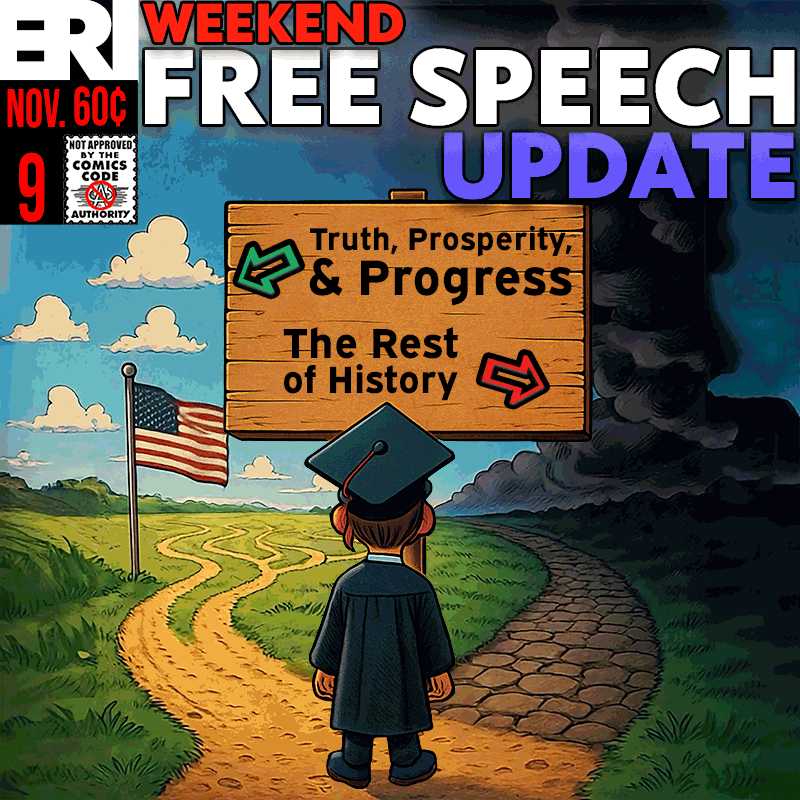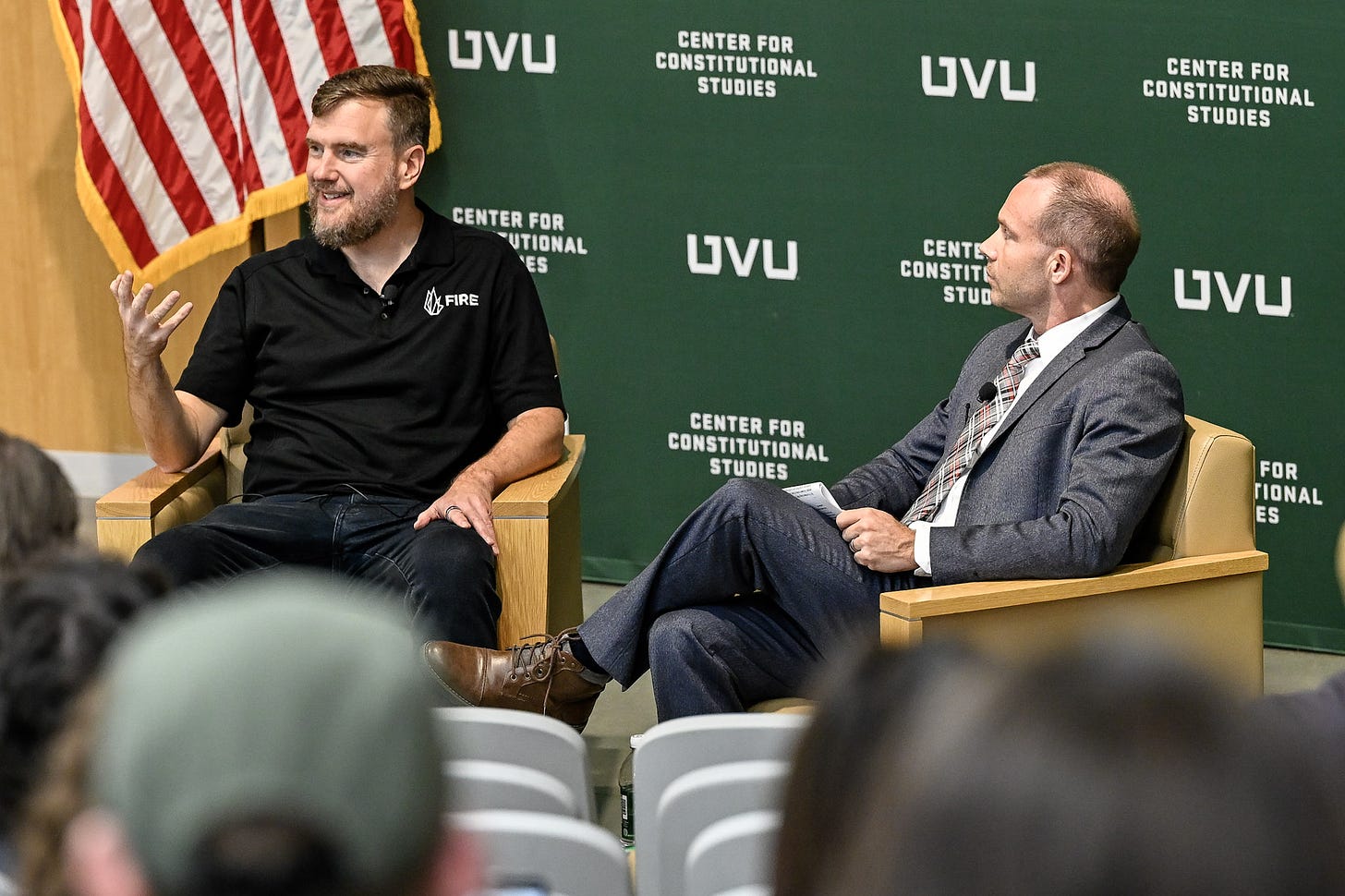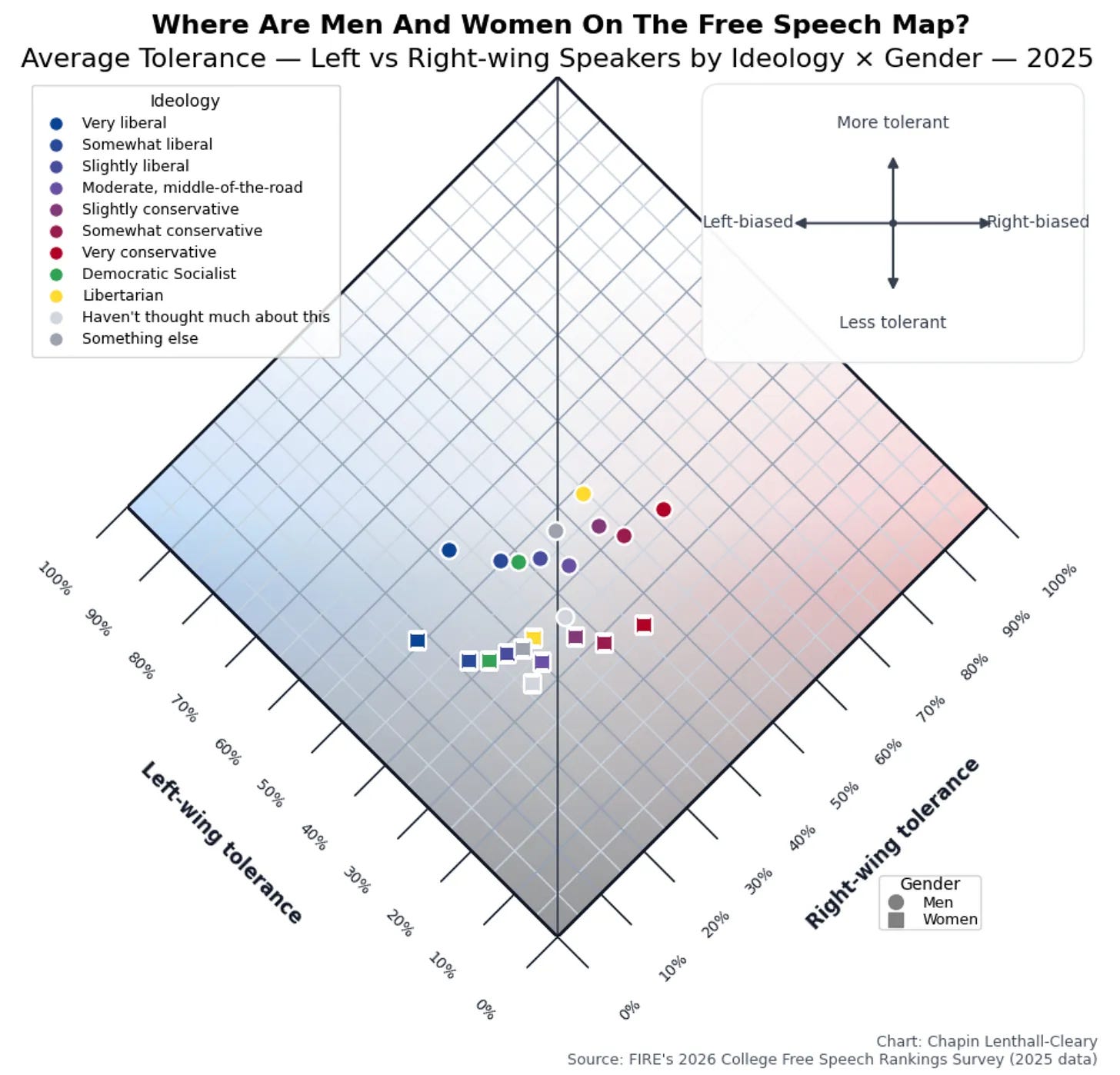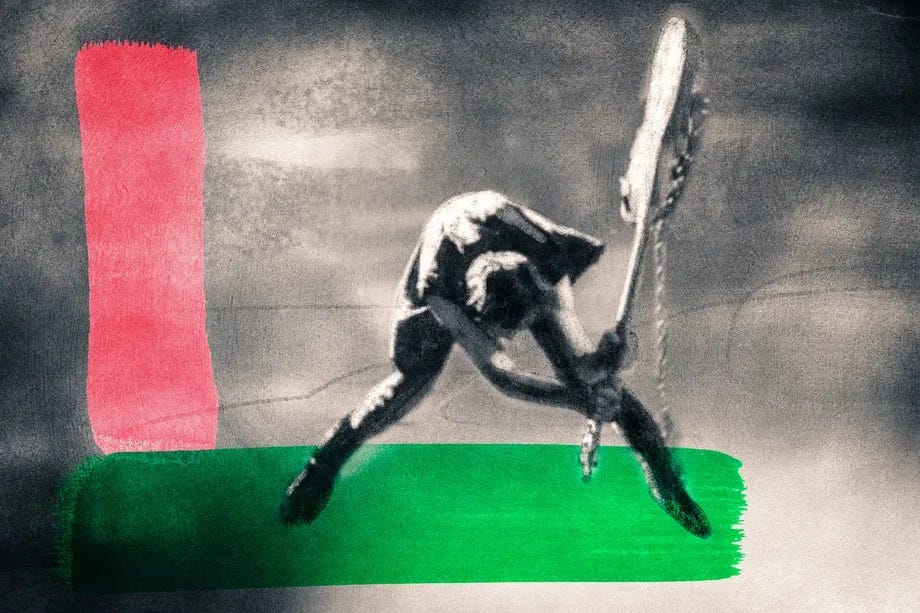Victory for Ann Selzer (and free speech), I spoke at UVU, shout downs are NOT protected speech, & more!
Bringing you the latest free speech news (11/9/25)
Story of the week
This lawsuit was a copycat of a still-pending suit filed by President Donald Trump against Selzer in December 2024 in which FIRE also represents her. FIRE Supervising Senior Attorney Conor Fitzpatrick remarked, “President Trump’s suit makes the same frivolous arguments against the same defendants. We are confident it will meet the same fate.”
This week in ERI
This week in Expression
The strength of anti-SLAPP protections varies by state, but most follow the same two-step process. First, the individual being sued files a motion to strike the SLAPP, arguing that the case targets their speech on an issue of public concern. If they can show that, the burden flips: the plaintiff then has to prove their lawsuit actually has merit.
Think of it as an expedited mini-trial that lets judges quickly toss out frivolous claims and spares defendants the time and court costs of full-blown litigation. If the plaintiff can’t make their case, the lawsuit gets tossed — and in many states, the plaintiff has to pay the defendant’s legal fees. That fee-shifting rule discourages people from filing bogus suits and encourages lawyers to take on free speech cases for clients who otherwise would not be able to afford defending themselves.
Institutional neutrality can’t be used to turn students into puppets by Graham Piro
The vanishing Vista by William Harris
Most people are horribly intolerant. What sets the rest apart? by Chapin Lenthall-Cleary
FIRE in the press!
In other words, the conduct we’re attempting to measure largely falls under the “heckler’s veto” doctrine (or, in the case of private colleges, would fall under it at a public institution). This doctrine holds that it violates the First Amendment for the state to participate in efforts to silence or disrupt speakers by acting against the speaker based on the hostile reactions of others. It’s also violated when state actors don’t enforce a rule that would normally protect the speaker. The heckler’s-veto doctrine arose out of the civil-rights movement, particularly attempts by angry white crowds to shut down pro-integration protests.
London Calling: Ronnie’s First Amendment Roundup
Federal court preliminarily enjoins Colorado’s mandate for social media disclosures to minors as likely unconstitutional
The U.S. District Court in Colorado preliminarily enjoined a new state law that requires social media platforms to “establish a function” that provides minor users “with information … that helps the user understand the impact of social media on the developing brain and the mental and physical health of youth users,” based on “data from peer-reviewed scholarly articles” or sources placed in a “mental health and technology resource bank” by a Colorado Department of Education-led stakeholder group. Platforms can either develop their own function—so long as it is “informed” by as-yet unpublished standards from Colorado’s chief information officer for notification frequency, sample notification content, and the recommend age range of users who would most benefit—or use pop-up or full-screen notifications, repeated at least every 30 minutes, to any user who attests to being under 18, once they have spent one cumulative hour on the platform in a 24-hour period, or are on it between 10:00 p.m. and 6:00 a.m. The court rejected state claims that the notification mandate should face and can survive Zauderer review applicable to purely factual and noncontroversial disclosures for potentially misleading commercial speech. It also rejected the state’s position that “the entire relationship between … platforms and its user is commercial,” and noted Colorado’s law “targets the impacts of social media use generally,” not just ads on them. Emphasizing the Supreme Court’s holding in Moody v. NetChoice that social media moderation is expressive speech in and of itself, the court instead held the law is a content-based regulation subject to strict scrutiny, which it cannot withstand. Even if informing youth about asserted risks of excessive social media use is a compelling state interest, the court held, the law is unconstitutional as there are less restrictive alternatives to compelled disclosures, including that the state could incentivize social media to voluntarily make disclosures, or it could convey the information itself. “And even assuming that requiring social media companies to convey Colorado’s expressive message is more effective than Colorado delivering that message to minors itself,” the court held, it was “not convinced that this theoretical difference is great enough to overcome the exacting strict scrutiny standard.” So, ultimately, any “flexibility” that the law “affords social media companies to select the exact verbiage” for disclosures “is of no constitutional moment. The constitutional quandary” is that it “requires social media companies … engaged in expressive speech … to speak at all” under a state mandate.
International free speech stories of the week
Democratic Party Proposes Jail for Insulting Countries, Faces Criticism (The Chosun Daily) by Kim Myeong-il
UK university halted human rights research after pressure from China (The Guardian) by Amy Hawkins
Tanzanian police warn citizens of treason charges over inciting social media posts (TNX) by Raymond Muthee
President Samia Suluhu, during her swearing-in, vowed to defend Tanzania’s peace and sovereignty “through all means and at all costs,” cautioning against any attempts to destabilize the country.
Speech of the month
When I was invited to speak at Utah Valley University just weeks after Charlie Kirk was murdered on campus at a public event, I had mixed emotions. Fear and anxiety, of course, but also gratitude for the invitation. With such a traumatic and high profile event not far in the rearview mirror, it would be completely understandable for the school to cancel all pre-scheduled public events. Instead, they doubled down on their commitment to free speech. I felt a moral obligation to go and speak about the power of free speech, and the need for our society to recommit itself to words instead of violence.







I'm sorry. This is a confusing mess of links. Is there a point?
https://open.substack.com/pub/marlowe1/p/three-john-cheever-stories-about?utm_source=share&utm_medium=android&r=sllf3
I’ve always distinguished between two different types of booing—booing, for a limited time, to express displeasure or disagreement, which is protected speech, and booing to prevent the speaker from speaking at all, which is not.